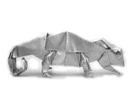


- On-line, life-long, or real-time adaptation/learning
- Spatio-temporal modeling (e.g. mapping, identification of dynamical systems)
- Dynamical systems
- Motion control
- Sensor data fusion
- Navigation
- Exploration (deep sea, volcanoes, planets, ...)
- Search (Resources: manganese, oil, gas ... Lost & found: airplanes, ships, .... )
- Rescue (earthquake/landslide/flood disasters)
- Monitoring (environmental, geological, biological, ...)
- ... or other forms of autonomy in natural environments
- Information about currently unknown areas
- Emergency technologies
- Environmental monitoring
The depths of the oceans, the heats of volcanos, the cold of Antarctica, as well as remote planets are getting more and more technically accessible. Still these areas are too wide or too dangerous to be explored by humans directly. Thus we will be requested to send artificial scouts from which we expect at least that they are coming back or transmitting relevant information before they disintegrate. Furtheron these creatures will be required to develop geographical abilities like for instance navigating a second time exactly to a formerly discovered place or delivering spatio-temporal models of various kinds.
Still most of our exploring vehicles from today are relying on the existence of permanent wireless connections, global positioning systems, or local geographic maps. Under the ice of Antarctica and most other places considered here, none of this infrastructure will be available. Therefore actual exploration abilities are expected to be bundled with a real enhancement of autonomy. This is what this workshop is about.
All presenters and audience submitting or exploiting fields like:
... working in applications addressing
... or considering social aspects including
are very welcome.
Chair: Rolf Pfeifer & Uwe R. Zimmer
Program committee:
Andreas Birk
Thomas Christaller
Holk Cruse
Walter J. Freeman
John Hallam
Hiroaki Kitano
Ulrich Nehmzow
Rolf Pfeifer
Noel Sharkey
Jun Tani
Roy M. Turner
Tamaki Ura
David Wettergreen
Deadline for manuscript submissions (6 pages max): July 31, 2000 - passed
Notification of acceptance: September 30, 2000 - passed
Delivery of full papers: November 30, 2000 - passed
Workshop: March 18th, 2001
![]() Final program (pdf)
Final program (pdf)
(a free reader for ![]() -files can be found here:
-files can be found here: ![]() )
)
Complete Information regarding the hosting congress can be found here while useful facts about the city of Dubai, travelling, and living can be found here.
